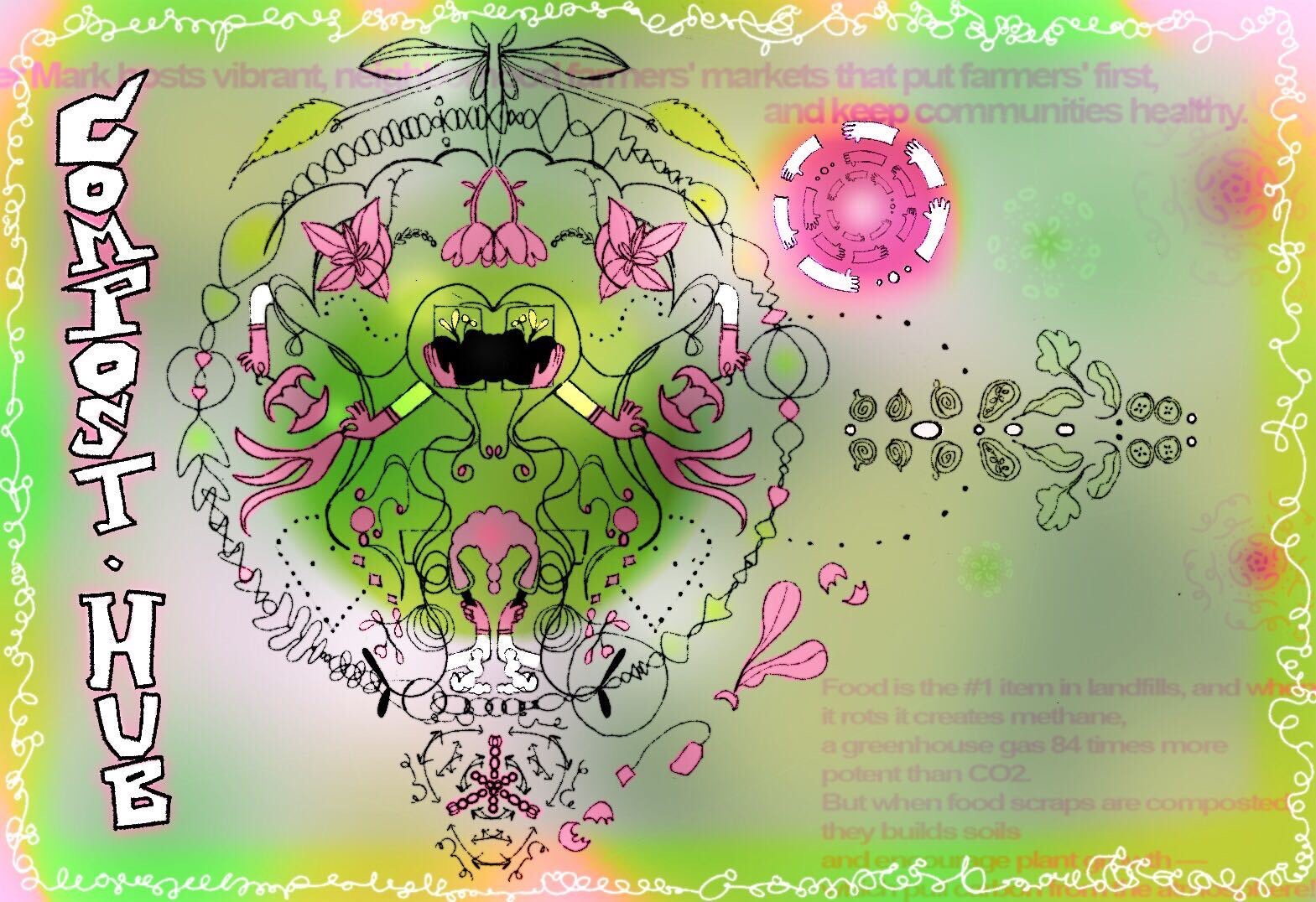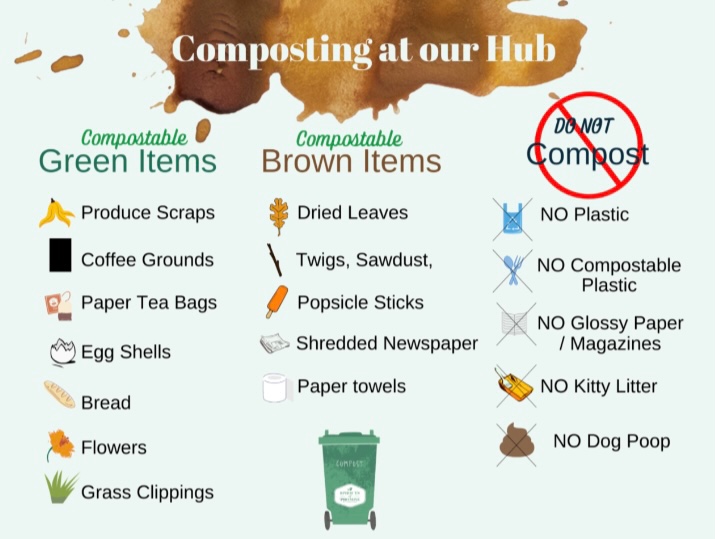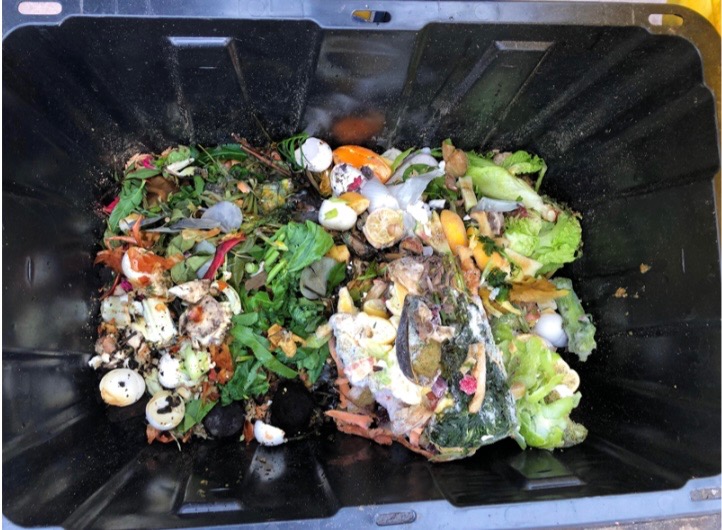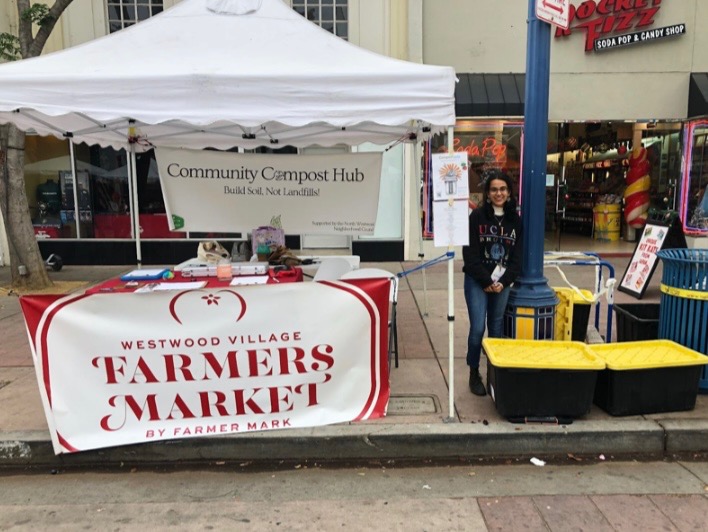A Guide to Composting While Living in Westwood

Image Description: A green and pink graphic which reads “compost hub.” Various doodles of plants, hands, and greenery are included. Faded words read “Mark hosts vibrant, neighborhood farmers’ markets that put farmers’ first, and keep communities healthy” and “Food is the #1 item in landfills and when it rots, it creates methane, a greenhouse gas 84 times more potent than CO2. But when food scraps are composted, they build soils and encourage plant growth….” Design by Katie Perez.
Food scraps and other biodegradable materials make up about 30% of the waste that ends up in landfills, where it takes up space and releases methane (a potent greenhouse gas) into the atmosphere. Thankfully, composting exists as a more environmentally friendly way to dispose of all the biodegradable waste we produce on a daily basis! UCLA students have multiple options for ways to integrate composting in their life.
Due to UCLA’s large-scale composting initiative, students who live on The Hill have easy access to composting outlets where they can leave food waste and compostable plastic items. Composting waste bins are located across The Hill, both near residential restaurants and on each floor of the residential halls. However, composting options are not as straightforward for those who live beyond the boundaries of The Hill.
So, without further ado, here is a comprehensive guide to composting while living in Westwood:
1. Know which items are compostable.

[Image Description: the title at the top of the image reads “Composting at our Hub,” with three columns below including information about compostable green items, compostable brown items, and items that should not be composted. This information is listed in greater detail below.]
The above graphic is a guide to composting at the Westwood Farmers Market’s composting hub, which has slightly different guidelines than other composting outlets. It allows typical green compostable items such as produce scraps (e.g. banana peels, potato peels, etc.), coffee grounds, paper tea bags, egg shells, bread, flowers, and grass clippings. Additionally, it allows brown compostable items, including dried leaves, twigs, sawdust, popsicle sticks, shredded newspaper, and paper towels. However, there are a few items this composting hub does not allow, such as compostable (and other) plastics. The hub also does not allow people to dispose of glossy paper, kitty litter, and dog poop.
2. Separate compostable items from other waste.

[Image description: compostable food scraps filling the bottom of a black rectangular bin.]
While preparing food in your home, create a separate waste bin for compostable items rather than throwing them in the trash can. Since most people don’t want a pile of rotting food in the corner of the apartment, many compost hub users recommend placing compostable items in the freezer until they dispose of them at the farmer’s market.
3. Bring your compostable items to the Westwood Farmers Market between 12:00 and 5:00 pm on Thursdays.

[Image description: On the left, there is a white tent with a banner in the back stating “Community Compost Hub: Build Soil, Not Landfills!” At the front of the tent, there is a table with a red banner attached to the front, reading, “Westwood Village Farmers Market by Farmer Mark.” On the right, Jasmine, the assistant manager of the Westwood farmers market, stands smiling next to several black bins with yellow lids.]
You can find the farmers market at 1030 Broxton Avenue Los Angeles, CA, 90024. Upon dropping off your compostable items, you will be greeted by Jasmine, the assistant manager of the farmers market pictured above, or by a friendly volunteer. Simply drop your waste into the bins with yellow lids, and you’re set. According to Jasmine, about 20–25 Westwood residents stop by to drop off their compost every Thursday.
4. Give yourself a pat on the back for making environmentally conscious choices.
Of course, composting is not a viable option for everyone for a variety of reasons. However, for those who are able, any effort to minimize your environmental impact is so important. By keeping biodegradable materials out of landfills, you are reducing the amount of methane in the atmosphere, and in the process, reducing the effects of climate change.
If you are interested in getting involved with more composting efforts, the composting hub is in need of “Compost Goalie” volunteers to help make sure that non-compostable items stay out of the pile. Email [email protected] for more information!




